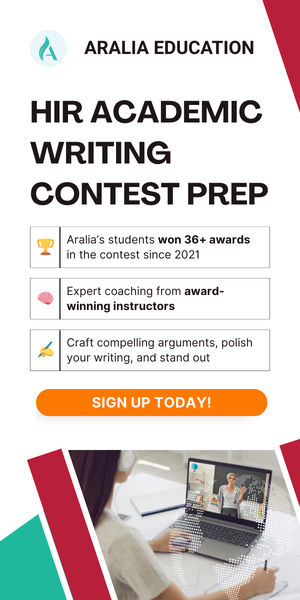1. What Is English Literature?
English Literature focuses on the study of written works with artistic and intellectual value. While the field is appealing to avid readers and writers, it is often overlooked due to relatively low starting salaries.
According to the National Association of Colleges and Employers (NACE), the average starting salary for English graduates is $44,723 in 2023. Once the fourth most popular major in the U.S., English has now fallen to 12th place—the lowest rank recorded by the National Center for Education Statistics (NCES) in the past 50 years.
2. Advantages of Studying English Literature
Despite the rising demand for STEM (Science, Technology, Engineering, and Math) fields, English Literature offers unique advantages. Many employers actively seek candidates with strong communication skills and essential soft skills.
Key Skills Gained from an English Literature Degree
Hard skills are quantifiable abilities like coding or calculus, often acquired by STEM students and applicable in careers such as software engineering, web development, or finance.
In contrast, English majors possess a valuable and competitive hard skill that many STEM students lack: effective writing.
Additionally, English graduates often excel in soft skills, which are crucial for job success. These skills are harder to quantify and teach and are typically tied to communication and decision-making. Here are some examples of soft skills:
- Effective Writing: It can be considered both a hard and soft skill. English graduates excel in crafting clear and persuasive content—a skill increasingly valued across industries.
- Cognitive Flexibility: Ability to consider diverse perspectives and adapt communication styles for various audiences.
- Judgment and Decision-Making: Analyzing issues, making decisions, and forming sound judgments.
- Creativity: Developing creative thinking through reading poetry and writing fiction. Creativity is among the most sought-after and hard-to-recruit soft skills.
- Critical Thinking: Analyzing problems independently and presenting evidence-based arguments clearly.
These skills make English graduates highly competitive in the job market, offering them opportunities beyond traditional career paths.
3. What Is It Like to Study English Literature at the Undergraduate Level in the U.S.?
Generally, English departments in U.S. universities focus on four main areas of study, allowing students to specialize in one: Literature, Writing and Rhetoric, Creative Writing, or Linguistics.
- Literature: Spanning centuries and cultures, this focuses on analyzing works that reflect diverse historical and social contexts.
- Writing and Rhetoric: These courses teach students to construct and support arguments effectively. Rhetoric and writing skills are critical across careers, especially in business and marketing.
- Creative Writing: Students write fiction or non-fiction, rather than argumentative essays based on existing material. Workshops provide peer feedback to refine their work.
- Linguistics: This discipline studies language structure, rules, and variations, offering a scientific approach to understanding language behavior in real-world contexts.
4. Required Courses for English Majors at U.S. Universities
Most U.S. undergraduates declare their major by the end of their sophomore year.
In the first two years, students typically complete general education requirements across arts and sciences. This broad exposure helps them make informed decisions based on experience rather than assumptions about potential careers.
For example, students in the College of Liberal Arts and Sciences at the University of Illinois Chicago (UIC) must complete general education courses in areas such as:
- Analyzing the Natural World
- Understanding the Individual and Society
- Understanding the Past
- Understanding the Creative Arts
- Exploring World Cultures
- Understanding U.S. Society
At UIC, 78–84 credits of general education and electives are required, forming part of the 120 credits needed to graduate. The remaining credits focus on core English courses, electives, and specialization courses in a chosen literary field.
Common core courses for English majors include:
- British Literature I: Origins to 1660
- British Literature II: 1660–1900
- American Literature: 1900 to Present
- Core Writing Courses
- Core Theory and Criticism Courses
Specialized elective topics might include:
- Postcolonial Literature
- Cultural and Media Studies
- Gender Theory
- Introduction to Fiction Writing
- Latino/a Literature
- 19th-Century Russian Novels
- Women and Literature
5. What Careers Can You Pursue with an English Degree?
English majors often choose careers in writing or teaching, though many industries value strong writing skills. Here are some common options:
- Copywriter
- Role: Create content for marketing and other purposes.
- Median Salary: $51,000.
- High School Teacher
- Role: Teach English and other subjects to high school students.
- Median Salary: $49,000.
- Public Relations Specialist
- Role: Help organizations maintain a positive public image, often involving writing tasks.
- Median Salary: $48,000.
- Technical Writer
- Role: Simplifying complex information into manuals or guides
- Median Salary: $60,000.
6. What Do You Need to Prepare to Study English Major at University?
If you’re planning to pursue an English major in higher education, it’s helpful to start preparing during high school. Here are some key steps to get ready:
Foster a Passion for Literature: A love for reading is key to excelling in an English major. To prepare, read a wide range of books from different genres and historical periods. The more you read, the better equipped you’ll be for in-depth analysis and research at university.
Refine Your Writing Skills: Being able to communicate effectively through writing is crucial. Beyond conveying ideas, focus on expressing your opinions and building your voice. Experiment with different types of writing, and consider entering writing competitions to challenge yourself and learn from other students.
Explore a Dictionary: If you haven’t yet used a dictionary regularly, now is the time to start. Exploring a dictionary can expand your vocabulary and deepen your understanding of the language, even if you consider yourself proficient.
Develop Critical Thinking: Critical thinking is essential when analyzing literary works. Often, you’ll need to question the author’s intentions behind their words. To sharpen your critical thinking, consider joining a debate club or enrolling in a critical reading course to practice and improve these skills.
Explore the art of writing with Aralia
Start enhancing your writing and reading skills today with Aralia’s award-winning instructors. Dive into our Critical Reading and Literary Analysis and Analytical Writing courses, designed to help you uncover the deeper meanings behind classic literary works. If you’re looking to sharpen your writing through competitions, our upcoming Writing Competition Prep course offers expert coaching to guide you every step of the way.
While English Literature may not promise the highest starting salaries, it equips students with critical soft skills like creativity, communication, and critical thinking—skills essential in any industry.
With a rich curriculum spanning literary analysis, creative writing, and linguistics, studying English Literature in the U.S. not only opens doors to diverse career opportunities, but also lays a strong foundation for success in the professional world.
If you are passionate about literature and eager to explore and express yourself in the world of language, English Literature is undoubtedly a worthy pursuit.










